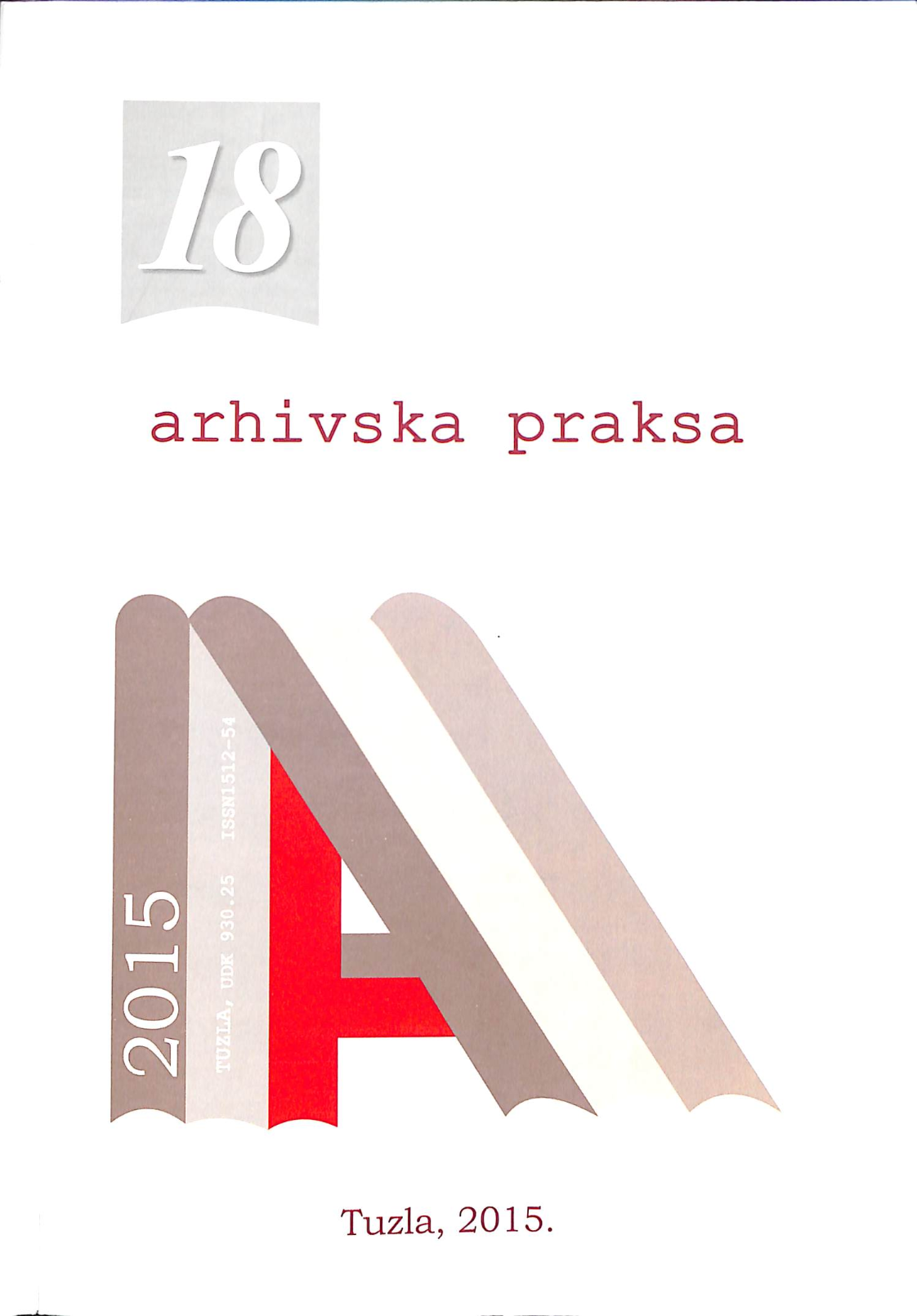Arhivsko gradivo javnih bilježnika u Republici Hrvatskoj – povijesni pregled
Archive records of public notary in Republic of Croatia – a historical review
Author(s): Radoslav ZaradićSubject(s): History, Archiving
Published by: Arhiv Tuzlanskog kantona
Keywords: Public notary; Republic of Croatia; archival records; evaluation; history;
Summary/Abstract: Thanks to the long tradition, with a brief interruption between 1941 and 1994, notary services in the area of today’s Republic of Croatian, today we have preserved relatively good number of Medieval and Early Modern scriptures that give us insight into the former life of the Adriatic utility cities. Often we do these scriptures only surviving source for the study, particularly for the period of the Middle Ages. Unlike Istria and Dalmatia in northern Croatia precedence over the issuing of official documents had been named a church are also diligently heed to his, still well preserved archives. In towns along the eastern Adriatic coast notary service initially were also dealt with priests. But gradually modify them professional notaries educated in Italian schools notary. We can conclude that the notary has developed and survived in those areas which were under the direct political influence of Italy and the Republic of Venice. Notary service in northern and north-eastern Croatian (Slavonia) in continuity can be traced only from the nineteenth century. The reason for this is the fact that this is an area for a long time was under the Habsburg Monarchy, later the Austro-Hungarian Empire, that part of the country that Notary until the second half of the nineteenth century did not was placed greater importance. Likewise, we should not neglect that the area of Slavonia, Lika and Dalmatia hinterland long time been part of the Ottoman Empire which had organized different territorial division and the structure of administrative and judicial administration. Javnobilježništvo in what is now the Croatian had its peak from the second half of the nineteenth century, when the service was established or renewed in the area of all Croatian lands. The new state, established just after the First World War was not successful in the harmonization of administrative and administrative and judicial apparatus, and even notary public. After the abolition of service, 1941 notaries are usually moved to the lawyers. Based on notarial offices manage to reconstruct a functioning rule of law, social relations, the history of everyday life, economic and economic conditions. In this article we set the focus precisely on the value of information which are rich in notarial documents. Because of the historical importance of records and public services by notary public today in Croatia is carried out, according to the law defined that their work resulting public archives and current records. Some of these documents shall be kept permanently and the Law on Archives and Archival ten years from the relevant state archives should start taking parts of this matter. Considering the tradition of archival service in Croatia which is based precisely on the obligation of medieval notary that their records water regularly and situated in a protected environment, I think this is the ideal time to start thinking about reinstitutionalizing storage of notarial offices in a single, specialized archives. Today in Croatia there are 318 public notaries. The legal responsibility to their own writings requires large expenses. When Notary Service ceases his writings can take notary who succeed him, the competent court or the National Archives. From the present situation, if we look at all courts and most state archives have big problems with the capacity and conditions of accommodation of archives and records. By archiving of notarized documents in one place to ensure maximum cost efficiency in the form of accommodation, transfer and protection of records. At least one of archival material that is no longer in operational use, and which will be more.
Journal: Arhivska praksa
- Issue Year: 2015
- Issue No: 18
- Page Range: 244-256
- Page Count: 13
- Language: Bosnian, Croatian, Serbian

